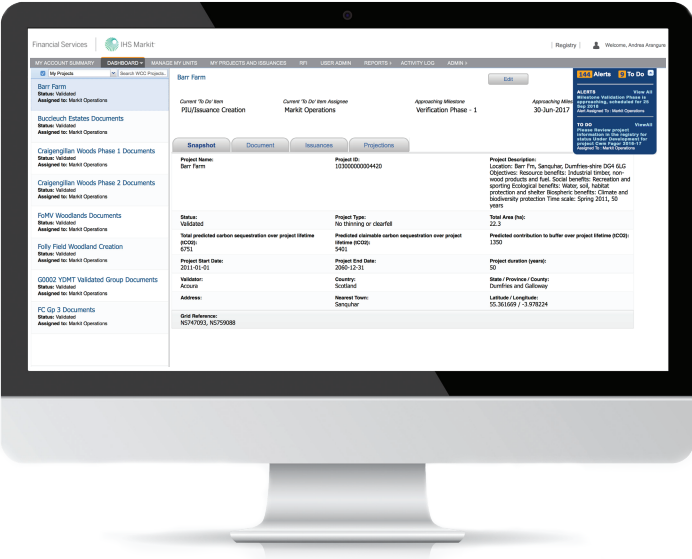-

What are Carbon Allowances?
Carbon Allowances are used in compliance carbon markets where government organizations or regulatory authorities provide regulated companies a certain number of carbon allowances every year, allowing them to emit one tonne of CO2 per credit. Market participants, often including both emitters and financial intermediaries, can trade allowances to meet regulatory requirements (or for hedging or trading purposes). In the case of cap-and-trade programs, called Emissions Trading Systems (ETS), the limit on carbon emissions (i.e., the cap) slowly decreases over time.
-

What are Carbon Offsets?
Carbon Offsets, traditionally used in voluntary carbon markets, enable companies (and individuals) to offset their carbon emissions by buying offsets that either reduce emissions (e.g. renewable energy) or remove emissions (e.g. reforestation). Carbon offsets have also been used in compliance carbon markets to satisfy a portion of cap-and-trade requirements.










